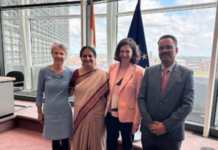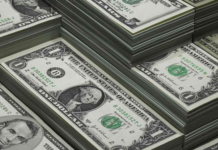New Delhi– China on Monday promised to address the issue of its massive trade surplus with India and work towards a more balanced trade relationship, while urging greater focus on the Regional Comprehensive Economic Partnership (RCEP) negotiations at a time of increasing protectionist trends globally.
This was stated in an Indian Commerce Ministry release following the 11th meeting here of the India-China Joint Group on Economic Relations, Trade, Science and Technology co-chaired by Indian Commerce Minister Suresh Prabhu and his Chinese counterpart Zhong Shan.
“Chinese Minister Zhong Shan welcomed Indian investment in China and promised to address the trade deficit between the two countries.
“The Minister highlighted the important issues discussed in the meeting like two-way trade relations, preparation of an action plan, greater focus on Regional Comprehensive Economic Partnership and e-dialogue,” the statement said.
India’s trade deficit with China has been growing in recent years and stood at over $51 billion in 2016-17.
According to the statement, Prabhu exhorted his Chinese counterpart for greater market access for Indian agricultural products like rapeseed, soyabean, basmati and non-basmati rice, fruits, vegetables and sugar.
“Another commodity which could be exported from India to China is high quality pharmaceutical products. Export of India’s I’ and IT Enabled Services (ITES) to China and cooperation in the sectors of tourism and healthcare needs to be focussed on,” it said.
The statement cited Prabhu as saying said that the joint group between India and China “is the oldest and the most important dialogue mechanism between the two countries.”
“Addressing India’s trade imbalance with China is the most important issue to be taken up by the group.”
The India-China Joint Economic Group meeting and China’s call on RCEP comes in the backdrop of growing protectionism with the US President Donald Trump slapping import tariffs of 25 per cent on steel and 10 per cent on aluminium earlier this month, unfolding the prospect of an all-out global trade war,
The mega free trade agreement — RCEP — is currently being negotiated between Asean member states — Brunei Darussalam, Cambodia, Indonesia, Laos, Malaysia, Myanmar, the Philippines, Singapore, Thailand and Vietnam — and Australia, China, India, Japan, South Korea and New Zealand.
The RCEP negotiations include trade in goods, trade in services, investment, economic and technical cooperation, intellectual property, competition, dispute settlement, e-commerce and small and medium enterprises, among others. (IANS)






